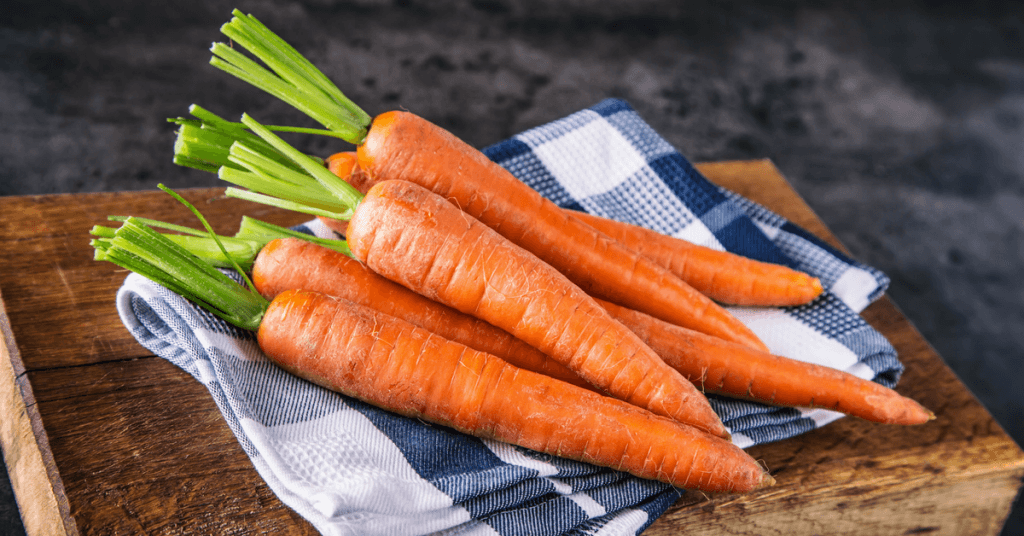- You are here:
- Home »
- Blog »
- Vegetables & Fruits »
- How Long Do Carrots Last? Can I Make Them Last Longer?

How Long Do Carrots Last? Can I Make Them Last Longer?
We often buy carrots in bulk from the supermarket since the big bag is cheaper than the smaller bag. However, it’s always disappointing when you are set to make that perfect meal only to find that one of your ingredients (carrots) went bad during storage.
The only thing we can think of besides how to still get that meal to be amazing is: “How long do carrots last?”
More...
Let’s start at the very beginning.
How Do You Know If Carrots Have Gone Bad?

Proper hygiene is always necessary for ensuring we stay safe from foodborne illnesses. Larger carrots will tend to last longer than baby carrots.
This is because they have their protective skin which enabled the carrot to hold its nutrients. This also implies that peeled carrots will go bad faster than unpeeled ones.
Some of the notable characteristics of carrots that are going/ have gone bad are white dots called “white blush”. These dots appear on the surface and they result from dehydration.
It is also important to note that slimy and mushy carrots should not be eaten as they pose potential health hazards.
How Long Do Carrots Last?

Carrots, like any other food, last a very short while if not stored properly.
Here is a table explaining how long different refrigerated carrots will last
Fresh Carrots (Whole) | 4 to 5 Weeks |
Baby Carrots | 3 to 4 Weeks |
Cooked Carrots | 1 Week |
- Did you know where do carrot seeds come from? Click here to find out the fascinating truth!
Storing Carrots To Make Them Last Longer
1. Freeze Them

Make sure you blanch them first. Blanching stops the activity of the enzymes that decay the carrots. These enzymes occur naturally in the carrot and it’s what helps them to grown and ripen. The enzymes continue acting even after harvest.
Freezing slows down the enzymatic action. Pre-treating the food kills these enzymes so as to disable the enzymes from acting on the food even when it’s frozen.
Steps to blanch carrots:
- a) Boil a large pot of salted water - about a gallon of water per pound of food to be added.
- b) Rinse your carrots.
- c) As your water boils, prepare a bowl of ice water.
- d) Submerge your carrots into the water once it boils. Set the timer to 3 minutes. Keep the heat high during blanching but do not overcook.
- e) Drain the carrots and put them into a bowl with cold water and set the timer again.
- f) Drain the carrots again after they have cooled.
- g) Now put your carrots in a freezer safe seal bag or container and place them in your freezer.
This video explains the process:
2. Steam Them
Here is the procedure:
- a) Rinse your carrots with water.
- b) Put 1/2 cup of water into the pan.
- c) Place your carrots into the steamer.
- d) Place your steamer full of carrots into the pan with water.
- e) Cover your pot and cook on medium to high heat for averagely 6 - 10 minutes.
This small video explains the process:
3. Canning
Canned carrots must be processed in a pressure canner. Do not can in a water bath canner. Here is how to can carrots
- a) Pick the small carrots. 1 inch to 11/4 inch diameter. Wash them, peel and then rewash the carrots again. Slice your carrots or dice them.
- b) Cover the carrots with water and boil them.
- c) Fill the jars with the boiling water.
- d) Remove the air bubbles. Wipe the jar rims. Adjust the two pieces of lids and then process.
Here is a video explaining the procedure:
Conclusion
Carrots like many vegetables are very delicate. It is important to observe these procedures in order to make these carrots last longer as well as observe hygiene.
Enzymatic activity is what causes our carrots to rot during storage and therefore do not skip any of the steps to stop the enzymes.
About the Author Laura Bennett
Hello, I’m Laura Bennett. I love nature especially when it comes to flowers and different kinds of plants. I started a very small garden behind my house and I named it Humid Garden. So, I created this blog to provide aspiring and inspiring thoughts about gardening for gardeners and anyone who has the intention of keeping a garden.
Related Posts
A Gardener’s Guide to the Best Fall Vegetables
The Benefits of a Cloche for Growing Your Own Vegetables
Like It Hot? Grow These Peppers at Home
How Vegetable Gardening Can Help Your Mental Health
Learning How to Tell If A Pomegranate is Ripe to Pick

